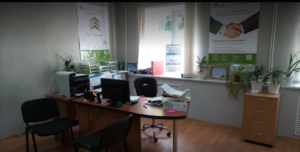Russian court examines criminal case against founders of FX pyramid Start-Invest
The founders of Start-Invest deny their guilt and insist that investors’ money was actually traded in the FX market.

A court in the Russian city Cheboksary is examining a criminal case involving the founders of Start-Invest, a now-defunct company that pledged huge returns to investors who pump their money into the FX market.
A report in Russia’s newspaper “Kommersant” says Denis Mineev and Maxim Vaitovich face fraud charges. They allegedly defrauded more than 2,000 investors for a total sum of approximately RUB 1 billion (USD 17.5 million). The firm was operational between 2011 and 2015. The prosecutors claim that the firm never had any capital but used that of its investors, thus operating as a typical pyramid.
The defendants, who are currently under arrest, deny their guilt and insist that investors’ money was actually traded in the FX market.

An archived version of the company’s webpage (startinvest.com), which is inactive now, shows that it promoted investments with artificially high returns. Investors were solicited to pump money into trading systems, managed by the company’s staff, as well as PAMM accounts.
This is not the first time that PAMM accounts, which are quite popular amid Forex traders in Russia, gain ill fame. Back in the days, Alpari has warned Forex Trend (which turned out to be a fraudulent firm, leaving investors without their money) about the unauthorized use of the “PAMM” trade mark and associated terminology.
It is good to see that a Forex scam case reaches the court, offering some justice to defrauded investors. However, as the number of cases when Forex and fraud go hand in hand rises, so does mistrust in the Forex industry in general. This is a particularly acute problem in Russia, where Forex regulation is novel – Vladimir Putin signed the relevant law in December 2014.
Plus, most people are often unaware of the difference between Forex and binary options, Forex and gambling, OTC and on-exchange trading, etc. One recent example was provided by a legal case involving Broker-Garant, a company claiming to provide OTC Forex trading. The police had suspected that the firm is illegally providing gambling services, but could not prove that the confiscated equipment was used for gambling. As a result, the police was ordered to return 70 pieces of computer equipment to the company.









